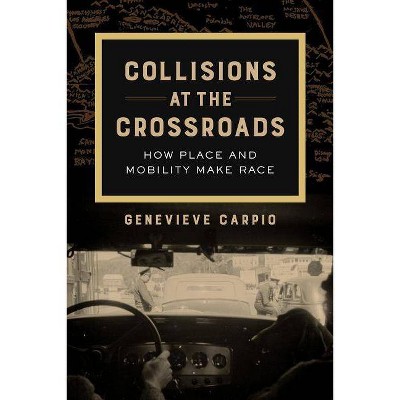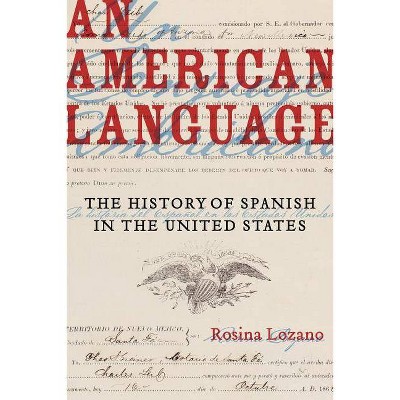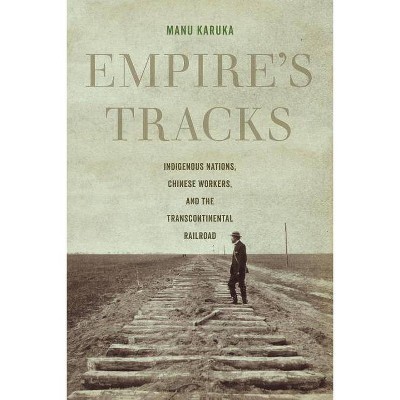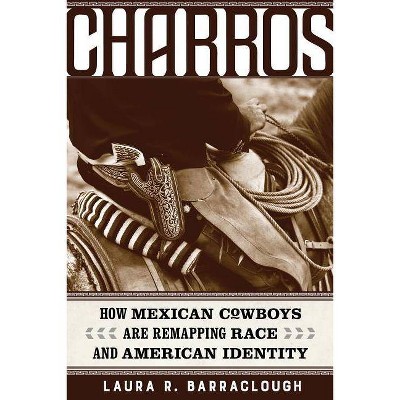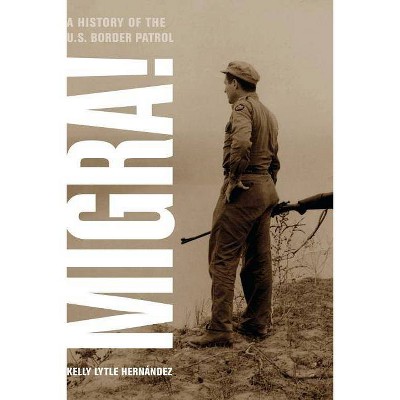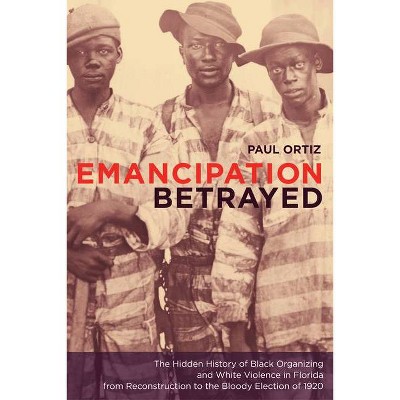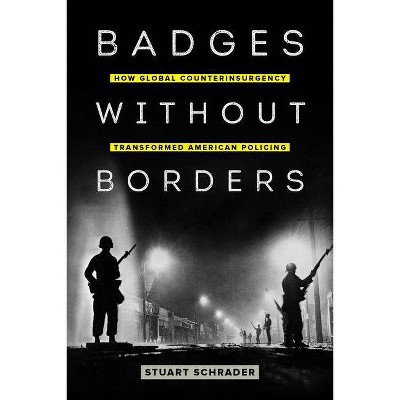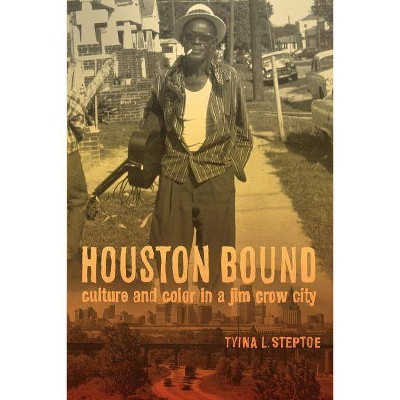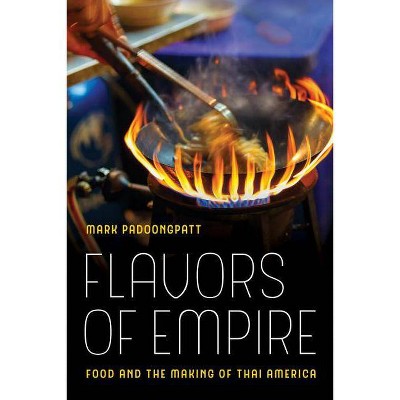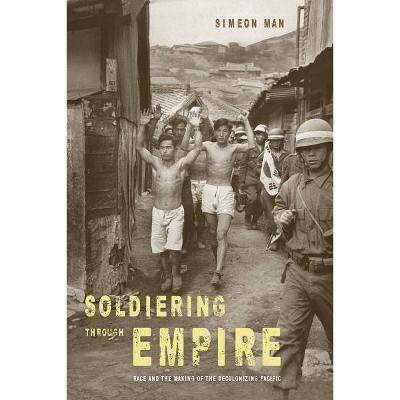Covert Capital, 37 - (American Crossroads) by Friedman (Paperback)
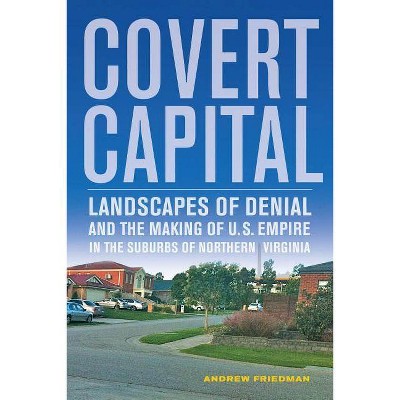
Similar Products
Products of same category from the store
AllProduct info
<p/><br></br><p><b> Book Synopsis </b></p></br></br>The capital of the U.S. Empire after World War II was not a city. It was an American suburb. In this innovative and timely history, Andrew Friedman chronicles how the CIA and other national security institutions created a U.S. imperial home front in the suburbs of Northern Virginia. In this covert capital, the suburban landscape provided a cover for the workings of U.S. imperial power, which shaped domestic suburban life. The Pentagon and the CIA built two of the largest office buildings in the country there during and after the war that anchored a new imperial culture and social world. <br /><br />As the U.S. expanded its power abroad by developing roads, embassies, and villages, its subjects also arrived in the covert capital as real estate agents, homeowners, builders, and landscapers who constructed spaces and living monuments that both nurtured and critiqued postwar U.S. foreign policy. Tracing the relationships among American agents and the migrants from Vietnam, El Salvador, Iran, and elsewhere who settled in the southwestern suburbs of D.C., Friedman tells the story of a place that recasts ideas about U.S. immigration, citizenship, nationalism, global interconnection, and ethical responsibility from the post-WW2 period to the present. Opening a new window onto the intertwined history of the American suburbs and U.S. foreign policy, <i>Covert Capital </i> will also give readers a broad interdisciplinary and often surprising understanding of how U.S. domestic and global histories intersect in many contexts and at many scales.<br /><br />American Crossroads, 37<br /><br /><br /><br /><p/><br></br><p><b> From the Back Cover </b></p></br></br><i>"</i>Amongst the book's many achievements, it provides an exemplary analysis of the myriad ways in which everyday, intimate, and 'local' circuits of power have been deeply imbricated in the ongoing rollout of imperial geopolitics since the mid-20th century."--Jamie Peck, <i>Progress in Human Geography</i> <p/>"This spatial and cultural analysis of seemingly innocuous suburban sprawl offers a compelling picture of a nation that could both deny and pursue Empire simultaneously. It is an example of American Studies at its very best."--Ron Robin, <i>Diplomatic History</i> <p/> "The book is a tour de force."--Christopher Capozzola, <i>Buildings and Landscapes</i> <br> "Loaded with stunning insights and fascinating revelations about a wooded swath of land just outside the nation's capital, <i>Covert Capital </i>is a model of interdisciplinary scholarship, unearthing the startling connections between landscape, empire and conspiracy." <br> --Eric Avila, author of <i>Popular Culture in the Age of White Flight: Fear and Fantasy in Suburban Los Angeles</i> <p/> "Brilliantly charting the myriad corridors stretching between Northern Virginia and the far-flung corners of U. S. intervention, Andrew Friedman's <i>Covert Capital</i> introduces readers to some of mid-to-late twentieth-century suburbia's open secrets: autocratic allies ensconced in leafy cul-de-sacs, other nations' futures worked out at poolside, cocktail chatter crossing CIA assets with real estate assets. In problematizing the boundaries between the foreign and the domestic, and the political and the personal, and in its subtle, interdisciplinary readings of spatial practice and architectural form, <i>Covert Capital</i> is essential reading for scholars seeking to interpret the landscapes of American global power." <br> --Paul A. Kramer, author of <i>The Blood of Government: Race, Empire, the United States and the Philippines</i> <p/> "In this highly innovative history of the U.S. empire, Andrew Friedman carefully delineates the suburban architecture that shaped even as it camouflaged America's global reach. In tracing the emergence of Northern Virginia as the nation's 'covert capital, ' he relocates the foreign in the domestic, showing the local sources of imperial power and the quotidian making of its multi-cultural agents. Ever attentive to the ironies of empire, Friedman deepens our understanding of American power by revealing the material designs of its elaborate disavowals." <br> --Vicente L. Rafael, author of <i>The Promise of the Foreign: Nationalism and the Technics of Translation in the Spanish Philippines</i> <p/><p/><br></br><p><b> Review Quotes </b></p></br></br><br><p>"<i>Covert Capital</i> makes an important intervention in the internationalization of U.S. suburban studies. . . . The book is a tour de force."</p>-- "Buildings & Landscapes"<br><br>"It is hard to see how this book could be improved. It is almost peerless."-- "AAG Review"<br><br>"Pathbreaking. . . an important contribution." -- "Journal of American Culture"<br><br>An innovative study of post-war American foreign policy on the home front.-- "In These Times"<br><br>An original and entertaining narrative showing how Cold War planning and operations permanently changed the suburbs of Washington.-- "Washington Post"<br><br>Friedman's sharp critique of America's roles in Vietnam and Central America motivates and permeates the entire project. Readers will both learn a great deal about American covert operations in the twentieth century and be forced to think about the geography of the national capital as well as its surrounding suburbs in an entirely new way.-- "Perspectives on Politics"<br><br>Groundbreaking . . . makes for eye-popping reading.-- "American Historical Review"<br><br>The book's detailed case studies are compelling reading as the author desconstructs the secret world of the American intelligence community, public and private. Recommended.-- "CHOICE"<br><p/><br></br><p><b> About the Author </b></p></br></br><b>Andrew Friedman</b> is Associate Professor and Chair of History at Haverford College. He has written for a wide variety of publications, including the <i>New York Times</i>, the <i>Journal of Urban History</i>, the <i>Baffler</i>, and the <i>Village Voice</i>. He was awarded an Honorable Mention for the 2015 Society of Architectural Historians Spiro Kostof Book Award.
Price History
Price Archive shows prices from various stores, lets you see history and find the cheapest. There is no actual sale on the website. For all support, inquiry and suggestion messages communication@pricearchive.us
